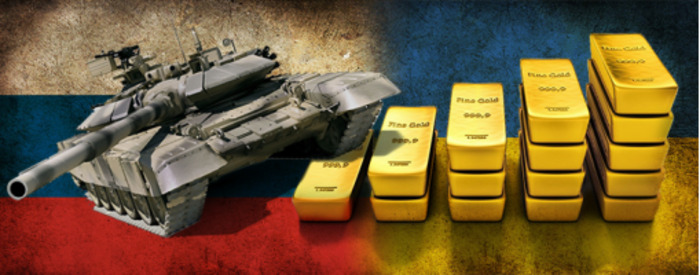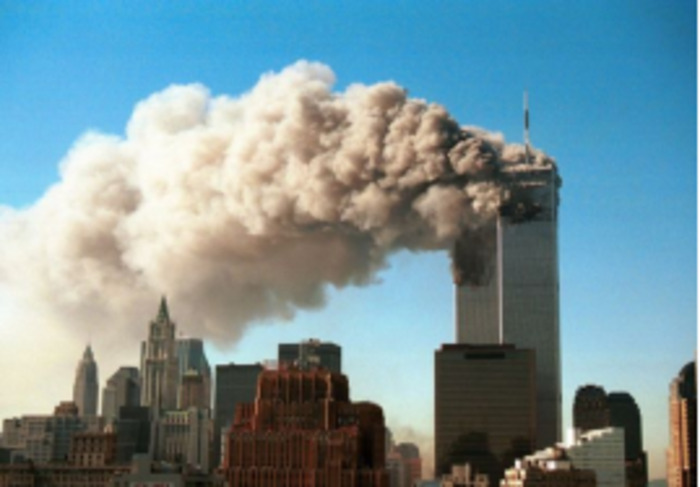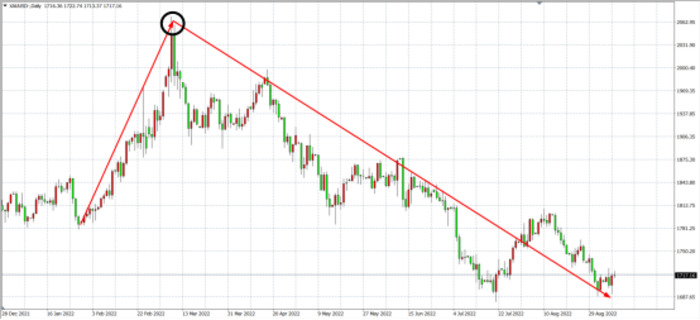The conflict between Russia and Ukraine has not stopped, how does the war affect gold?
 2022-09-09
2022-09-09
 1634
1634
The conflict between Russia and Ukraine has lasted for half a year. Although the front line has been narrowed, it has not yet stopped. The global commodity and energy pattern has ushered in earth-shaking changes, but gold seems to have been completely unaffected by the war factor. As the saying goes, when a cannon is fired, will the price of gold skyrocket as long as there is a war? Is this an unchanging iron law of history? The answer is no. This article will explain in detail how the war affects gold and reveal the main reasons behind the rise and fall of gold prices.
The relationship between war and gold
For the financial market, war means intensified market volatility, soaring turnover, increased uncertainty, and increased risk. The stock market, foreign exchange market, and bond market usually show a collapse trend at this stage. At the same time, yoyo and the market There is a lot of panic on the market, and gold is most prone to skyrocketing. At the same time, it is precisely because of this that in an environment full of uncertainty and conflict, gold is regarded as a safe-haven asset and is sought after, so it is more likely to be pushed up and soared by buying.

Gold prices are most likely to rise in about a month before and after the outbreak of the war. E.g:
In December 1979, the war between the Soviet Union and Iraq broke out, and the Islamic Revolution in Iran also entered a white-hot stage in the same year. From one month before the official outbreak of the war to one month after the outbreak of the war, gold rose from a low of $365 at the time to a high of $875, and the gold price increased by more than 200%.
The second event, the Iraqi invasion of Kuwait in August 1990, was the prelude to the Gulf War. From a low of $353 in July 1990 to a high of $408 in August 1990, the price of gold has risen by more than 100%. At that time, the President of the United States approved the special military operation of "Desert Shield", the market's anticipation of war increased sharply, panic and uncertainty reached a peak, gold became the most sought-after currency, and the price of gold ushered in a violent rise.
The third event, on September 11, 2001, was the famous international "September 11" incident. Al Qaeda terrorist organizations attacked the World Trade Center and the Pentagon in the United States. Gold soared from a low of $286 that day to a high of $291. An increase of more than 5%. In the next month or so, the panic of the event has not dissipated, and the price of gold has maintained a high and volatile pattern.

The fourth event, the Libyan war in 2011, began with the Benghazi protests in February 2011. Gold went from a low of $1,325 to a high of $1,920, and gold rose nearly 150% at one point.
The last is the Russia-Ukraine conflict that broke out in February this year. From the initial predictions of the conflict to the final outbreak of the war and the escalating geopolitical tensions, the price of gold soared from a low of around $1,788 to a historical high of around $2,070. The cumulative increase is more than 115%.
From the above examples, it can be verified that from the time when the market began to anticipate the war before the outbreak of the war until the market panic reached its peak, the price of gold ushered in a sharp rise. If calculated as a percentage value, it generally reached at least 100% from low to high gain. With the start of the war, the market's expectations fell, and investors' panic and uncertainties also subsided in the ongoing war, and the price of gold also fell sharply from the high.

(The conflict between Russia and Ukraine has entered a protracted war, and the price of gold has peaked and fell)
In history, almost as long as there is a war, gold will preempt the change, but when the war really comes, the market's expectations of betting in advance begin to materialize, and the price of gold also quickly rose after a short period of time and then fell. This year's Russia-Ukraine conflict officially In this way, from the beginning of the media and experts hyping Russia's motives, to the rapid pressure of the Russian army after the war, and then the solidarity of NATO allies, the market expects that the war situation will further expand, and even the hype will evolve into "The Third World War", However, as the war continued to drag into the quagmire, the blitzkrieg gradually transitioned into a protracted war, and the fronts of both sides began to shrink. Market uncertainty and panic fell, and the price of gold peaked and fell.
The market is always hyping expectations. As the so-called "buy news and sell facts", the rise of gold prices is due to the fermentation of expectations, and the subsequent decline is the result of the realization of expectations. Usually before the war officially begins, major news and social media analyze and predict to varying degrees, market investors begin to price the war, and when the war really begins, the expectations are fulfilled, the market begins to adjust, and then the price of gold falls. It can be seen that the pricing of expectations is a key factor in gold's surge and decline before and after the war.
The above information is provided by special analysts and is for reference only. CM Trade does not guarantee the accuracy, timeliness and completeness of the information content, so you should not place too much reliance on the information provided. CM Trade is not a company that provides financial advice, and only provides services of the nature of execution of orders. Readers are advised to seek relevant investment advice on their own. Please see our full disclaimer.

CM Trade
As a world leading financial trading platform, CMtrade Provides comprehensive one-stop trading services and opportunities for traders.
[Products]
The platform provides over 32 kinds of popular financial products such as forex, precious metals, crude oil, indices, cryptocurrencies and more.
[System]
2 top trading systems CM Trade MT4 / CM Trade APP, powerful and easy to operate
[Service]
Comprehensive market news, professional market analysis, 7*24 hours online customer service
[Advantage]
Low cost, high leverage, flexible one-stop all day two-way trading.
[Authority]
Licensed and strictly regulated by authorities. Traders deposits are independently kept by the bank. Fast deposit and withdrawal. Fair, efficient and transparent trading environment.
CM Trade Mobile Application
Economics Calendar
MoreYou May Also Like



 简体中文
简体中文
 ภาษาไทย
ภาษาไทย
 繁體中文
繁體中文
 Indonesia
Indonesia











